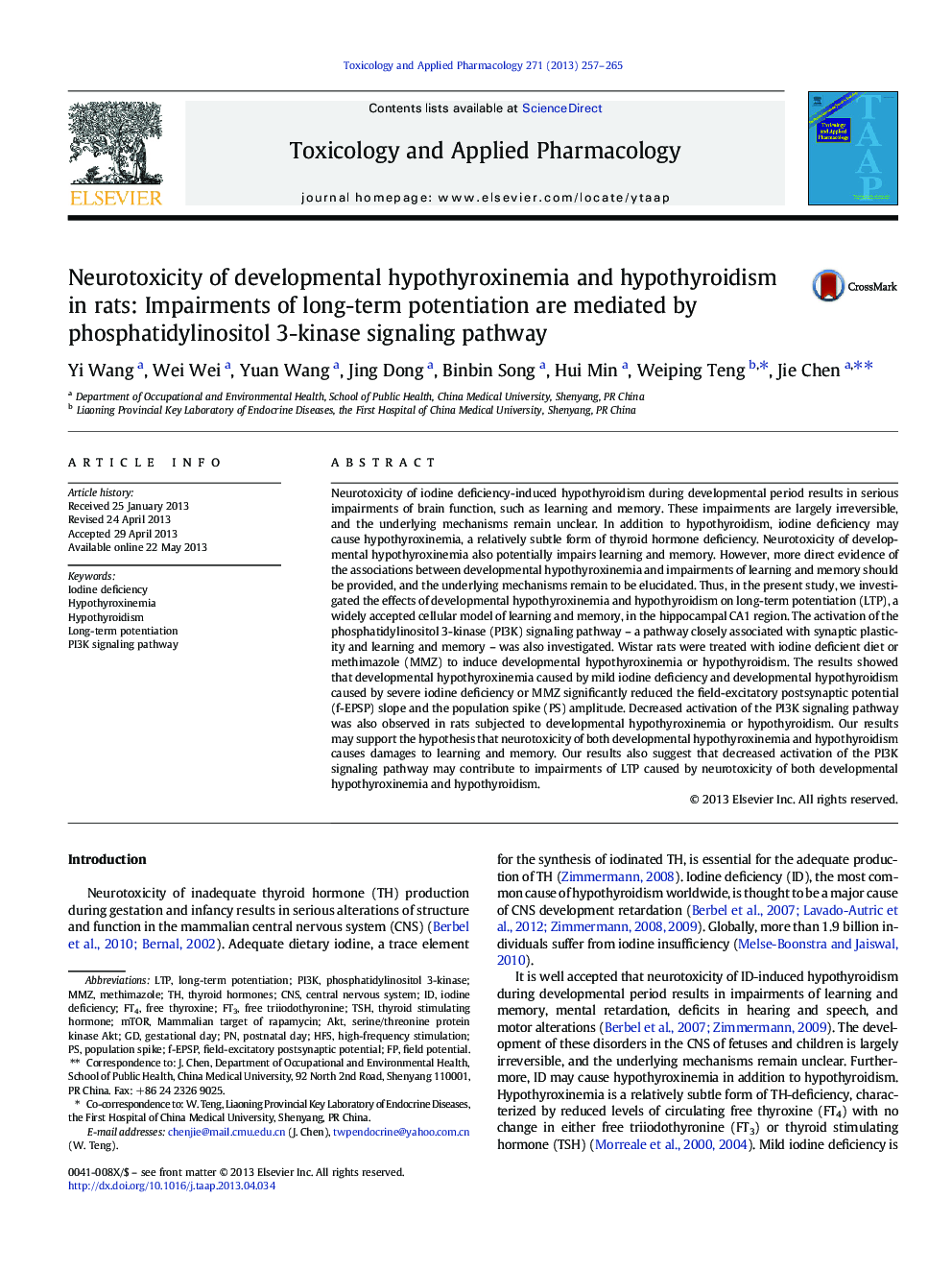| Article ID | Journal | Published Year | Pages | File Type |
|---|---|---|---|---|
| 2568954 | Toxicology and Applied Pharmacology | 2013 | 9 Pages |
•Neurotoxicity of developmental hypothyroxinemia impaired LTP.•Decreased activation of PI3K signaling contributed to LTP impairments.•The recovery of TH after the developmental period did not prevent LTP impairments.•ID diet successfully induced neurotoxicity of developmental hypothyroxinemia.
Neurotoxicity of iodine deficiency-induced hypothyroidism during developmental period results in serious impairments of brain function, such as learning and memory. These impairments are largely irreversible, and the underlying mechanisms remain unclear. In addition to hypothyroidism, iodine deficiency may cause hypothyroxinemia, a relatively subtle form of thyroid hormone deficiency. Neurotoxicity of developmental hypothyroxinemia also potentially impairs learning and memory. However, more direct evidence of the associations between developmental hypothyroxinemia and impairments of learning and memory should be provided, and the underlying mechanisms remain to be elucidated. Thus, in the present study, we investigated the effects of developmental hypothyroxinemia and hypothyroidism on long-term potentiation (LTP), a widely accepted cellular model of learning and memory, in the hippocampal CA1 region. The activation of the phosphatidylinositol 3-kinase (PI3K) signaling pathway – a pathway closely associated with synaptic plasticity and learning and memory – was also investigated. Wistar rats were treated with iodine deficient diet or methimazole (MMZ) to induce developmental hypothyroxinemia or hypothyroidism. The results showed that developmental hypothyroxinemia caused by mild iodine deficiency and developmental hypothyroidism caused by severe iodine deficiency or MMZ significantly reduced the field-excitatory postsynaptic potential (f-EPSP) slope and the population spike (PS) amplitude. Decreased activation of the PI3K signaling pathway was also observed in rats subjected to developmental hypothyroxinemia or hypothyroidism. Our results may support the hypothesis that neurotoxicity of both developmental hypothyroxinemia and hypothyroidism causes damages to learning and memory. Our results also suggest that decreased activation of the PI3K signaling pathway may contribute to impairments of LTP caused by neurotoxicity of both developmental hypothyroxinemia and hypothyroidism.
